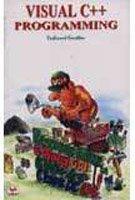 12.0%OFF
12.0%OFF

Download App
| >> | LShop | >> | Book | >> | Society & Social Sci... | >> | Education | >> | How Societies Change... |
 12.0%OFF
12.0%OFF
How Societies Change (Sociology for a New Century Series)
-
ISBN
:
9781412992565
-
Publisher
:
Sage Publications, Inc
-
Subject
:
Education, Science: General Issues, Social Services & Welfare, Criminology
-
Binding
:
PAPERBACK
-
Pages
:
184
-
Year
:
2011
₹
500.0
 12.0% OFF
12.0% OFF
₹
440.0
Buy Now
Shipping charges are applicable for books below Rs. 101.0
View DetailsEstimated Shipping Time : 5-7 Business Days
View Details-
Description
This book, the only brief and affordable macro-sociology text available for undergraduates, describes how societies have changed over the past five thousand years. The discussion focuses on the idea that industrial societies, despite their great success, have created a new set of recurring and unsolved problems which will serve as a major impetus for further social change. This book explores development through historical narrative and examines the globalization/development paradox through in-depth case studies.
-
Author Biography
Daniel Chirot is the Job and Gertrud Tamaki Professor of International Studies and of Sociology at the University of Washington in Seattle. His most recent book is called Contested Identities: Ethnic, Religious, and Nationalist Conflicts in Today’s World and was recently published by Routledge. He is the author of Modern Tyrants, published by Princeton University Press, and the co-author, with Clark McCauley, of Why Not Kill Them All? The Logic and Prevention of Mass Political Murder, also published by Princeton. He has written several books about global social change and has authored as well as edited other books about economic history, ethnic conflict, and international politics. Chirot has served as a consultant for various foundations and NGOS working in Eastern Europe and West Africa. His research and writing has been helped by grants from, among others, the United States Institute of Peace, the John Simon Guggenheim Foundation, and the Andrew W. Mellon Foundation. He has a BA from Harvard University in Social Studies and a PhD in Sociology from Columbia University.
Related Items
-
of












 440.0
440.0






 135.0
135.0













